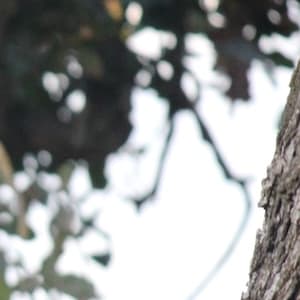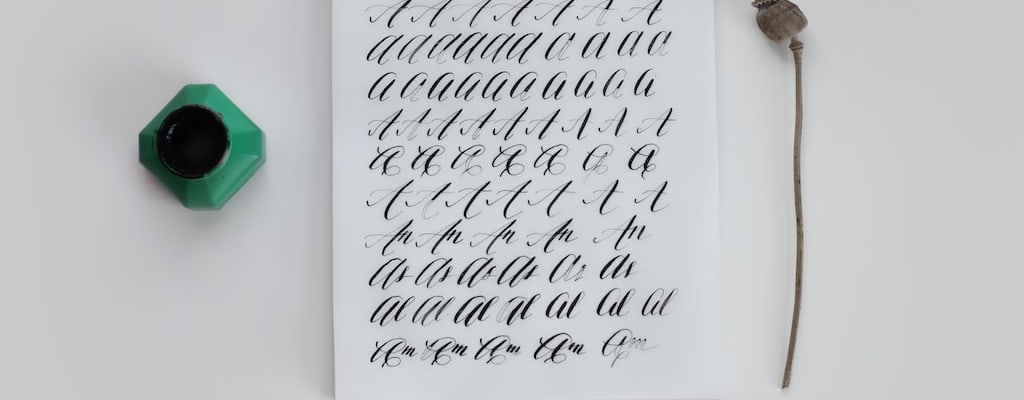shoot holes: Idiom Meaning and Origin
What does ‘shoot holes’ mean?
The idiom "shoot holes" means to find flaws or weaknesses in something, typically through critical analysis or examination.

Idiom Explorer
The idiom "throw stones" means to criticize or blame someone, often without considering one's own faults or mistakes
The idiom "take a stab at" means to make an attempt or try something, often without being sure of the outcome or success.
The idiom "take a shot in the dark" means to make a guess or attempt something without any knowledge or information. It implies a lack of certainty or confidence in the outcome.
The idiom "strike a blow" means to make a forceful or significant action or effort to achieve a desired result or to fight against something perceived as negative or unjust.
The idiom "stick the knife in" means to purposely say or do something to harm or betray someone, usually when they are already in a vulnerable or difficult situation.
The idiom "square peg in a round hole" is used to describe a person or thing that is unsuitable or does not fit well in a particular situation or environment.
The idiom "spot check" refers to a random and brief examination or inspection of something to ensure its quality, accuracy, or compliance with standards.
The idiom "spit nails" means to be extremely angry or furious.
Deciphering the Obscure Phrase
The idiom "shoot holes" is a phrase rooted in the English language, often used figuratively to describe the act of criticizing or finding flaws in an idea, plan, or argument. When someone "shoots holes" in something, they are systematically pointing out its weaknesses or undermining its validity. This idiom is derived from the literal act of shooting holes in a target or an object, which symbolizes the act of exposing weaknesses and vulnerabilities.
The idiom "shoot holes" can also be understood as a metaphorical representation of the process of assessment and analysis. By visualizing the act of shooting holes in a target or object, one can draw a parallel to the act of examining an idea or plan to identify its weaknesses. This idiom has become a commonly used expression in everyday conversations, reflecting the importance of critical thinking and thorough evaluation in various contexts.
The origins of the idiom "shoot holes" can be traced back to the early 20th century, although it is challenging to pinpoint an exact moment or originator. As with many idioms, the phrase evolved naturally over time and became ingrained in the vernacular through repeated usage. The idiom is now widely recognized and understood, particularly among English speakers in the United States.
The idiom "shoot holes" embodies the notion of scrutiny and skepticism. It is often employed when individuals engage in discussions or debates to challenge or undermine an opposing viewpoint. By "shooting holes" in someone's argument, individuals aim to expose logical fallacies, weak evidence, or faulty reasoning. This idiom serves as a rhetorical tool to discredit an idea or point out its deficiencies.
The related idiom "pick holes" shares similarities with "shoot holes." Both idioms involve the act of finding flaws or weaknesses, but "pick holes" specifically focuses on nitpicking or finding small, often insignificant, faults in something. While "shoot holes" implies a more systematic and comprehensive critique, "pick holes" suggests a more detailed examination aiming to highlight any minor flaws that may exist. However, both idioms ultimately serve the purpose of pointing out weaknesses and undermining the credibility of an idea, plan, or argument.
Furthermore, the related idiom "blow a hole through" can also be connected to the concept of "shoot holes." While "shoot holes" implies a gradual process of exposing weaknesses, "blow a hole through" suggests a more forceful and immediate weakening of an idea or argument. When someone "blows a hole through" an argument, they effectively dismantle it with compelling evidence or persuasive counterarguments. This idiom emphasizes the impact of a strong critique that leaves no room for doubt or opposing views.
The idiom "shoot holes" can be applied in various contexts to improve critical thinking and evaluation. In academic settings, students are often encouraged to "shoot holes" in their own research or assignments, scrutinizing their work to identify potential weaknesses or areas for improvement. By engaging in self-criticism and embracing critical analysis, students can refine their arguments and produce higher quality work.
In the business world, the idiom "shoot holes" can inform decision-making processes and strategic planning. When considering a new business venture or proposal, individuals can "shoot holes" in the plan to identify any potential risks or obstacles. This rigorous evaluation allows for better-informed decisions and helps mitigate future challenges. Additionally, in marketing or advertising campaigns, professionals may use this expression to analyze their strategies and ensure that there are no weaknesses or vulnerabilities that could be exploited by competitors or reviewers.
The idiom "shoot holes" is an invaluable tool in fostering a culture of open-mindedness and continuous improvement. By encouraging individuals to challenge ideas and critically evaluate arguments, this idiom contributes to intellectual growth and the advancement of knowledge. Furthermore, it reinforces the idea that no idea or plan is flawless and that there is always room for improvement.
The idiom "shoot holes" is a versatile expression that embodies the act of criticizing and finding flaws in an idea, plan, or argument. It encourages individuals to engage in critical thinking and evaluation, enabling them to identify weaknesses and strengthen their positions. The related idioms "pick holes" and "blow a hole through" further emphasize the importance of scrutiny and skepticism in fostering intellectual rigor. By embracing these idioms, individuals contribute to the continuous refinement and development of knowledge and understanding.
Example usage
Examples of how the idiom *shoot holes* can be used in a sentence:
- She couldn't help but shoot holes in his argument during the debate.
- As a critic, his main job was to shoot holes in artists' work and point out any flaws.
- The detectives tried to shoot holes in the suspect's alibi through thorough questioning.
More "Critique" idioms



